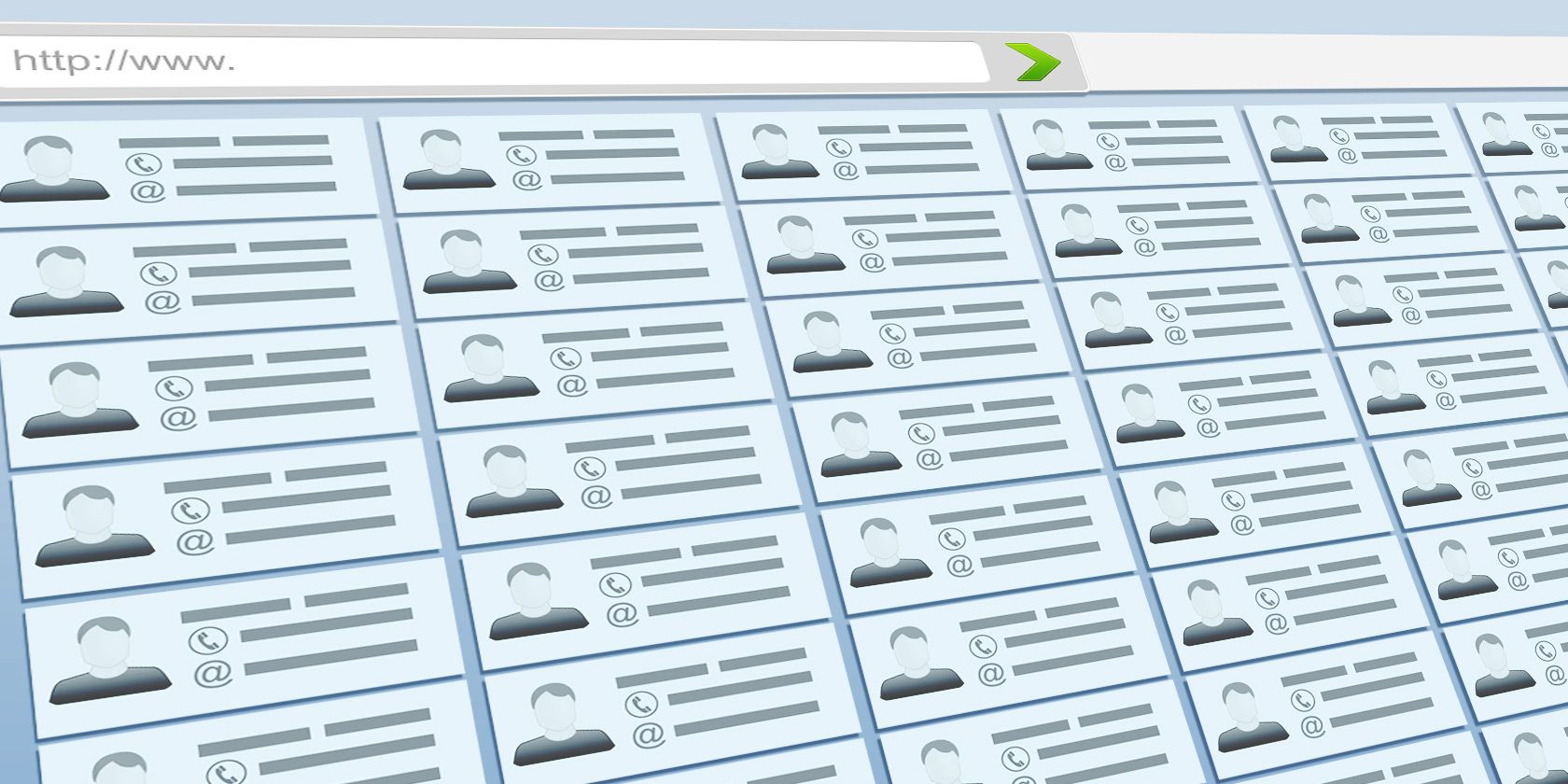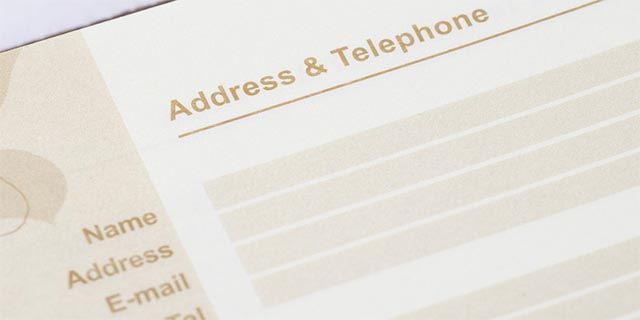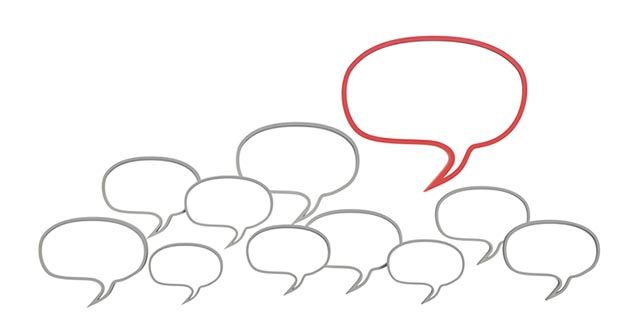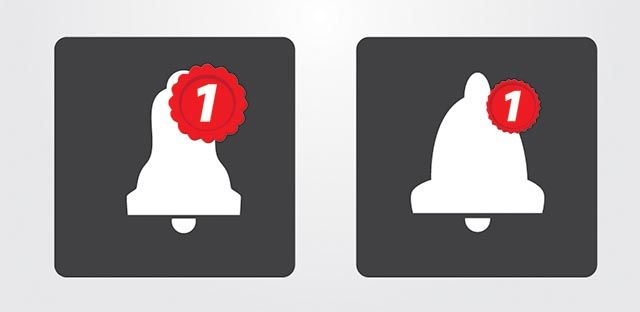"Out of sight, out of mind." Does that describe your social connections? I admit that it's true of me. We live in a time when information flows so quickly, a time when our day-to-day lives are busier than ever, that it can be difficult to keep track of our contacts and maintain our relationships. And, unfortunately, we suffer for it.
Socialization requires effort, there's no way around that. However, these tips will provide ways for you to remember and maintain your lines of communication with friends, family, and colleagues. Don't let poor contact management result in broken relationships.
Use the Right Tools and Systems
The first thing to do is make sure you're equipped properly. There was a time when you could store all of your contacts' details right in your head, but those days are over. Even the days of black address books are over. These days, we're more connected than ever before, thus we need something with more power and flexibility to match.
If you aren't plugged into a social network yet, you're lagging behind. Like it or not, social networking is becoming core to society and will soon be - if it isn't already - the preferred method of staying in touch. For personal relationships, use the ones that most of your friends and family use, whether Facebook, Instagram, or Twitter. For business, you'll want to look at LinkedIn.
Managing all of this contact information is a pain, which is why you should also consider using a tool like Plaxo, which is a universal address book for the social age. With it, you can store your contacts from multiple social networks and it will automatically update your contacts' information as it changes. It's the closest thing to a digital Rolodex.
Online calendars, the most popular being Google Calendar, are often overlooked as a useful tool in non-business contexts. With it, you can set up schedules and appointments, automatically import events, synchronize with Windows Live, synchronize with iOS, and more. Use it to plan and manage your social meet-ups.
Whatever tool helps you to track your contacts and stay in touch, use it. Just remember that tools are only one variable in the web of social dynamics. There are deeper issues that lend to social fallout, such as the emotional component (or lack thereof).
Cultivate the Emotional Connection
Think about your preferred method of communication. Is it a phone call or a text message? Would you rather shoot instant messages or meet up and chat in person? Do you prefer email or VoIP? Maybe online message boards? For most of us, our communications are screen-to-screen more often than face-to-face or even voice-to-voice.
Believe it or not, this is a problem. We're losing a certain level of closeness and intimacy in our relationships because of our preference for text. It adds distance. That might be fine in a business context, but it can prove quite detrimental between friends and family. This deterioration in emotional connection can influence the "out of sight, out of mind" fallout.
But it's unreasonable to cease emails, text messages, and instant chat, so what can we do instead?
Use photos for contacts. This is equally applicable for personal and business contacts. It can be as simple as tying your contacts with their social network profile pictures, but for maximum effect, try to set each contact with a photo of their face. Do this on your phone, on your calendar, on your email, on everything. You'd be surprised how much of an impact this can have.
Learn about your contacts. Not exactly necessary for people whom you already know, but for acquaintances and professional contacts, this really helps. The more you know about someone, the more "real" they seem, and this helps build that emotional connection.
How to go about it? Read their public profiles if you can. If appropriate, strike up conversations with them through email, phone calls, or even physical meetings. As a bonus, they'll learn more about you in the process and you'll be more "real" to them as well.
Be involved in your social networks. It's one thing to "follow" your contacts. It's another to keep up with them by reading their feeds, their walls, their streams, etc. Is it a lot of work? Yes, but it does pay off. Not only do you learn more about them in the process, it provides opportunity for conversation.
Keep notes. It might sound strange at first, but there are some real benefits to reap by taking notes. How many times have you browsed through your contacts only to wonder, "Who is this?" Asking them to reintroduce themselves can be embarrassing for you and insulting to them, which might even lead to a sour relationship. Avoid these moments with cursory notes. Every contact management tool has a field for notes.
Clear out old contacts. Some relationships last forever, but many do not. That's just how life goes sometimes. Every once in a while, delete your old contacts so you can focus your energy on current contacts. Better to have a few strong connections than a plethora of weak ones.
Reach Out and Follow Up
Managing your online contacts is just as much mindset as it is action. Do you want to build strong online relationships? Ultimately, if you answer in the negative, no amount of advice will help you. For those of you who lack the mindset and want to develop it, what can you do?
Reach out. Every online interaction has to be initiated by somebody. If you're never the initiator, your relationships will suffer. Ideally, the split would be 50-50 between you starting conversations with others and others starting conversations with you. Practically, however, try to initiate more often than not.
Follow up. Relationships consist of a series of interactions. One is not enough. Follow up on past conversations and continue reaching out. Each time you do, the relationship will evolve further. With that being said, keep the context in mind. Business interactions should be less frequent than personal interactions for the most part.
Don't be afraid. Fear might prevent you from staying in contact with others. Whether you're thinking of sending a text message, a private message, or an email, be bold about it. This is easier said than done, of course, but important all the same.
Set up reminders. If your online relationships rarely sit at the forefront of your mind, consider setting a few regular reminders to catch up and follow up with your contacts. Even a brief message here and there can work wonders. After a while, when it turns into a habit, the reminders may no longer be necessary.
Do you need to implement all of these tips to maintain healthy social connections? No, not necessarily. However, if you're finding it difficult to manage all of your online contacts, hopefully these tips do help.
Have any other tips? Share them with us in the comments below!
Image Credits: Social Ring Via Shutterstock, Address Book Via Shutterstock, Anonymous Profiles Via Shutterstock [Broken URL Removed],







